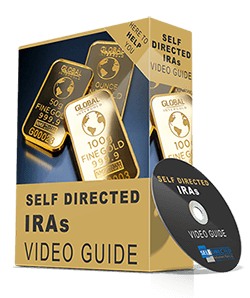An IRA custodian is a financial institution that holds your account’s investments and ensures that all government and the IRS regulations are adhered to all times.
It’s not difficult to find IRA custodians, but the best custodian for you will depend on what type of IRA you want and what sorts of investments you want to make with it.
Traditional IRAs vs. Roth IRAs
The main types of IRAs that most individual investors set up are the traditional IRA and the Roth IRA. However, there is one basic difference between the two. A traditional IRA is a tax-deferred account. This means your contributions are tax-deferred until you start withdrawing your funds at retirement. With a Roth, your contributions are taxed. This means the money you withdraw from your account at retirement is tax-free. Additionally, both traditional IRA and Roth IRA allow your money to grow free of income tax.
Self-Directed IRAs
With traditional or Roth IRA, you can have your account self-directed or managed through a custodian. In a self-directed IRA, you have the freedom to choose the funding methods and a wide variety of investment instruments. The custodian allows you to make investments outside the traditional world of investments including bonds, stocks, exchange-traded funds, and mutual funds.
Types of Custodians for Standard IRAs
- Banks:
If you want to invest in money market funds or FDIC-insured security of CDs, the bank can be a good option. However, banks generally do not offer many investment choices outside the traditional ones. Some banks offer broker-types services, but they charge a high fee, probably higher than the brokerage. - Brokerage Firms:
If you want to invest in individual bonds, stocks, mutual funds, or ETFs, you can opt for brokerage firms to be your IRA entity. - Mutual Fund Companies:
Mutual fund firms also offer their ETFs and mutual funds for you to invest in. - Insurance Companies:
Insurance companies offer their flexible premium annuities as basic IRAs. These annuities offer automatic account management, account value protection, and death benefit options. They are either variable or fixed. That said, IRAs are already tax-advantaged accounts. Insurance companies offering tax advantages of annuities is redundant. Additionally, you may have to pay high fees for having these annuities. - Robo-Advisors:
Robo-advisors are relatively new online investment platforms that offer algorithm-based portfolio management advice. These platforms are automated. This means there is no human intervention. Hence, the fees and other expenses are low. - Custodians for the Self-Directed:
If you want to choose a self-directed IRA, it can be a little complex. For a self-directed IRA, there are three types of providers: custodians, administrators, and facilitators. However, only the custodians have direct approval from the IRS and are authorized to hold assets.
The other two, administrators and facilitators, are actually intermediaries between you and your custodian (the one that holds your assets). Therefore, if you want to go ahead with a self-directed IRA, it’s better to stick to a true custodian.
All the institutions mentioned above can theoretically serve as custodians for your self-directed IRAs. But if you are leaning towards making non-traditional investments that are open to your self-directed IRA, you need to be particularly careful about your choice of custodian. If you are not careful, you can easily violate the IRS rules and pay severe penalties.
Tips for Choosing IRA custodian
Your chosen IRA custodian can either be an IRS-approved, non-financial firm or a financial institution given IRS approval. And if you are choosing a bank for setting up your IRA account, then the bank becomes your IRA custodian. The same stands true if you invest in a certain mutual fund family. Using such IRA custodians will save you a lot of money as their fees are relatively lower in comparison to institutional accounts. But, if you are choosing IRA custodian for a self-directed account, then make sure you choose an IRA custodian keeping the following 5 factors in mind.
- A Wide Range of Investment Options
The bigger the assortment of alternate investments, the more options you have to diversify your funds. So if you want to invest beyond stocks, bonds, ETFs and mutual funds, then your chosen IRA custodian should be able to help you look for non-traditional options like real estate and privately held companies. - Low Maintenance Fees
Fees come in various forms – annual maintenance fees, commissions for making trade, loads for mutual funds and the like. So, if your chosen IRA custodian charges a certain type of fee, check if it is uniform across custodians because these fees are not a “given”. And if you are investing in mutual funds, make sure your custodian offers different types of no-load mutual funds. - Knowledgeable About the Rules
If you have multiple IRA accounts then according to experts, you should consolidate your accounts into one fund and delegate a single IRA custodian. Your IRA custodian should be knowledgeable about the rules of the IRS, the rules based in tax law, and also know which types of IRA accounts cannot be consolidated. - No Restrictions on Investments
Certain IRA custodians limit your investment options because the nature of their charter is restricted. These limitations may not be the same as the restrictions imposed by the IRS. So, make sure you choose an IRA custodian with no restrictions. When you are opening an IRA account, make sure your choice is based on the type of account you prefer – Traditional or Roth. If you want to diversify your portfolio then a self-directed IRA will give you the freedom to take check book control of your finances. - Prompt Services
Unless you are fine working with a robot advisor, easy access to a knowledgeable and experienced financial advisor is very important. When you are managing a self-directed IRA, a vague or incomplete answer is the last thing you’d want to deal with.
Call Self Directed Retirement Plans LLC at (866) 639-0066 today to learn more about the alternate investment choices you can make with a self-directed IRA.
Also Read: What Is A Self-Directed IRA LLC?

Rick Pendykoski is the owner of Self Directed Retirement Plans LLC, a retirement planning company based in Goodyear, AZ. He has over three decades of experience working with investments and retirement planning, and over the last ten years has turned his focus to self-directed ira accounts and alternative investments. If you need help and guidance with traditional or alternative investments, call him today (866) 639-0066.




